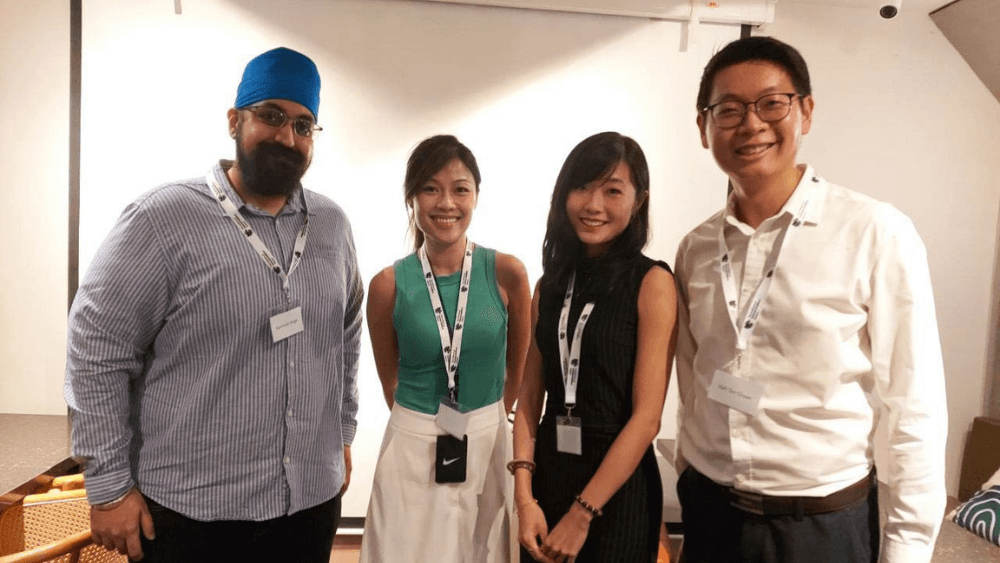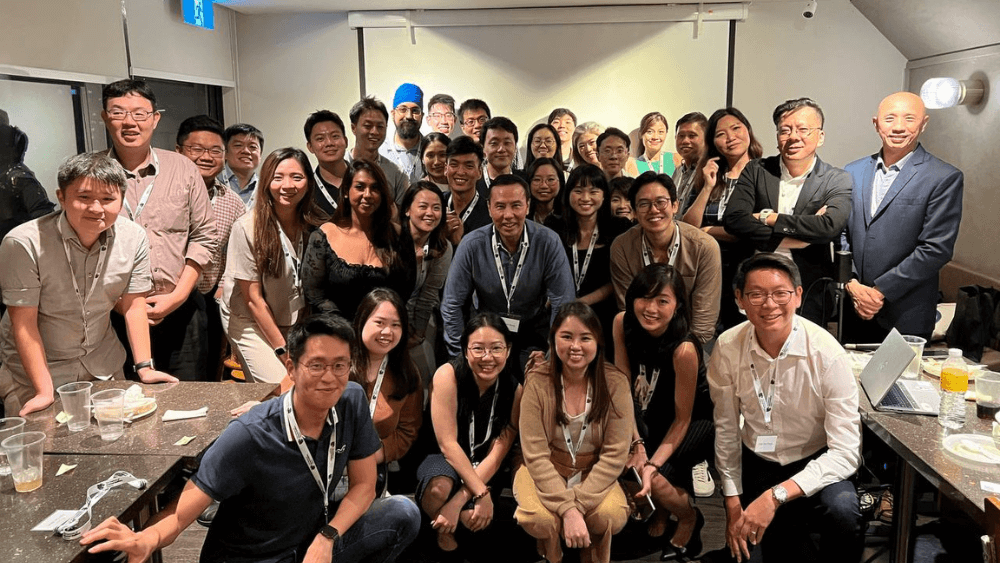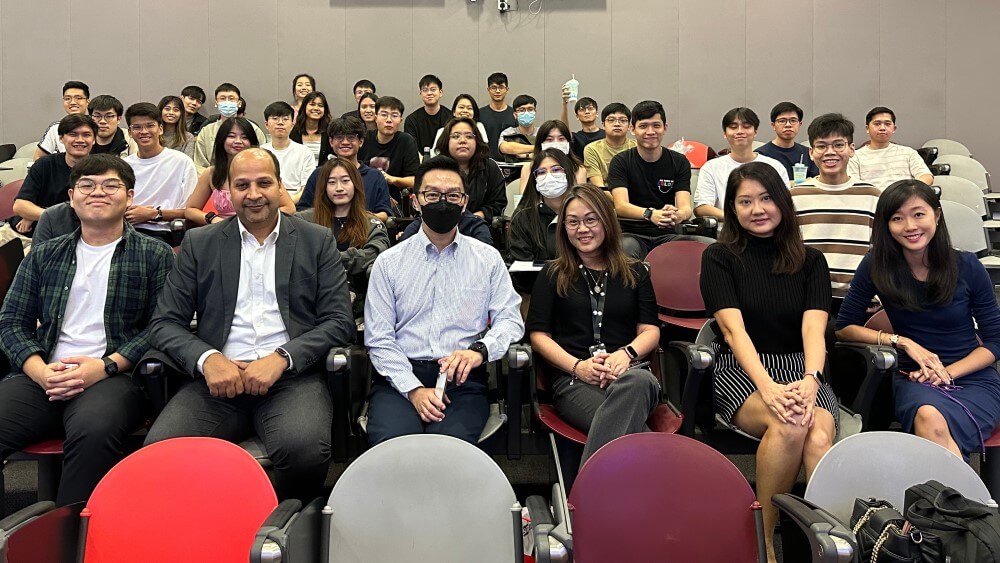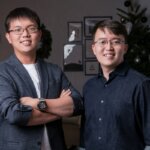By the SMU School of Accountancy
Accountancy graduates embarking on careers in audit might not come as a surprise, but did you know of the intriguing differences between internal and external audit?
Defined by the Institute of Internal Auditors as an “independent, objective assurance and consulting activity designed to add value and improve an organisation’s operations,” internal auditing is regarded as one of the main career tracks in the Accountancy sector today.
Having embarked on a career in internal auditing upon graduation, SMU School of Accountancy alumna Olivia Loke is part of the Global Internal Audit team at Colliers. Outside of her job, she also found time to serve as the Chairperson of Young Professionals Working Group (YPWG) at the Institute of Internal Auditors Singapore (IIAS), to advocate for the interests of the internal audit community in Singapore.
We speak with Olivia to dive into her journey and insights on what one can expect with a career in internal audit.
As part of the Global Internal Audit team at Colliers, can you tell us more about your work as an internal auditor and what sort of skills are essential for this role?
Internal audit is an independent function and is commonly known as the third line of defence. We help to evaluate and improve the efficiency of governance and internal control processes, so that the organisation can achieve its strategic goals and objectives.
While the more widely known external audit function looks at the financials of the organisation, internal audit looks at the people and processes driving those financial figures. In fact, internal audit is quite possibly the only function that understands the ins and outs of every business unit in the organisation.
To perform our role, we conduct process-understanding interviews, perform operating effectiveness tests, and present our observations to management and the audit committee. A large portion of our time is spent on managing our stakeholders and working with them to arrive at feasible strategies to improve the state of controls.
Thus, it’s essential to be an empathetic listener, possess keen observation and professional scepticism, and master facilitation skills. It is also important to stay relevant by keeping up with news and trends that might affect the organisation’s risk management.
Can you share with us how you came to the decision to specialise in this field after graduation?
I did a couple of internships while in SMU – one in external audit and another in a finance function for a multinational company, and it was through the SMU Assurance and Advisory Team (SAAT) that I first got a taste of internal audit.
As part of SAAT, I attended a corporate tour and presentation by the Institute of Internal Auditors Singapore (IIAS), which inspired me to take a leap of faith and apply for an internal audit role during my penultimate year at SMU. Fortunately, it’s a field that I still enjoy being in today!

Olivia (2nd from right) with IIAS governor (2nd from left) and participants of the YPWG Christmas Networking Party
In January 2023, you were appointed Chairperson of the Young Professionals Working Group (YPWG) at IIAS. Can you share with us what the committee aims to achieve and more about your role as its Chairperson?
The YPWG is a formal working group under the IIAS. We strive to represent and advocate for the interests and needs of young internal audit professionals in Singapore.
We develop strategies and implement programmes to engage young IIAS members, promoting integration within the community. In addition, we drive awareness and raise the profile of the internal audit profession among young professionals in Singapore.
As the Chairperson of the YPWG, I lead a team of 10 young internal audit and risk management professionals to organise events to bring the community closer.
Before my tenure with the YPWG, no physical events could be organised due to the Covid-19 pandemic. As such, my team and I brought back live events in 2023. This entailed coordinating with IIAS to bring our envisioned events to fruition.
Apart from existing professionals, the YPWG would also organise and participate in outreach initiatives to help tertiary students understand the profession better. Together with my team, we work with faculty members and student associations to create opportunities for collaboration between IIAS and tertiary institutions.
How do you strike a balance between managing the demands of your role at Colliers and as Chairperson of YPWG?
At Colliers, I have the flexibility and autonomy to develop the internal audit plan for the Asia Pacific region. This allows me to have oversight over the upcoming work plans.
Likewise, my role in the YPWG requires me to curate an annual plan of events. Blessed with knowledge of what’s to come allows me to plan and manage my time efficiently.
I used to have a long list of items on my plate and haphazardly ticked them off as and when possible. However, I found that breaking down these items/deliverables into bite-sized daily tasks have helped me stay focused during the day and feel more accomplished in knocking out those tasks.
Having a good support system has also helped me juggle both roles. Event planning is no easy feat, especially when it’s for internal auditors by internal auditors, simply due to the nature of our profession – frequent business travels, stakeholder management, and regular reporting, amongst others.

Olivia (front row, 2nd from right) with participants of the YPWG Christmas networking party
I am grateful for a good support system in the form of my family, closest friends, IIAS and my YPWG team, who keep me motivated during challenging moments.
My immediate boss at Colliers has also been highly encouraging and supportive of my endeavours in both areas. He has never rejected my involvement in YPWG events, even those occurring during official working hours. With his trust, I can fulfil both roles concurrently, rather than view them as competitors of my time and energy.
With a career in internal audit spanning close to 10 years, can you share with us how your education in SMU School of Accountancy has helped you achieve your career goals?
The SMU Accountancy modules and professors helped build a good foundation and grasp of accounting concepts going into the workforce. Courses such as Accounting Information Systems, as well as Governance and Risk Management allowed me to appreciate process flows and the importance of good governance and risk management frameworks.
Technical competencies aside, navigating the corporate world and excelling as an internal auditor requires a myriad of soft skills, such as people and conflict management, teamwork, articulation of analytical thoughts, and presentation of ideas.
I didn’t think too much about it when I was a student juggling numerous projects, psyching myself for class presentations, and pushing myself beyond my comfort zone to participate during class discussions.
On hindsight, these unique points that form the SMU pedagogy gave me a preview into the corporate world, serving me in good stead with skills that were necessary in my career.
Lastly, do you have any advice for your juniors who are keen to pursue a career in internal audit?
I understand that my juniors can now take internal audit as a course at SMU and this is a great start. Besides taking the course, try to do internal audit internships to get a taste of the profession and determine whether it’s to your liking.
The IIAS also offers student memberships that provide exclusive access to networking events, career talks, and mentorship sessions. These events are excellent avenues to understand more about this profession and connect with potential employers.

Olivia (extreme right) with YPWG members at the SIT Accountancy Forum
While hands-on experience is essential, internal auditors should first understand the theoretical bedrock of what, why, and how to do what we are supposed to do.
This can be achieved by pursuing the Certified Internal Auditor (CIA) certification. The IIAS offers this to student members at a subsidised rate. I personally recommend completing this certification while in university to gain a head start in the profession and avoid the hassle of juggling work and exams as a young working professional.
Looking to embark on a career in internal audit? Don’t miss your chance – submit your application before 19 Mar 2024!











